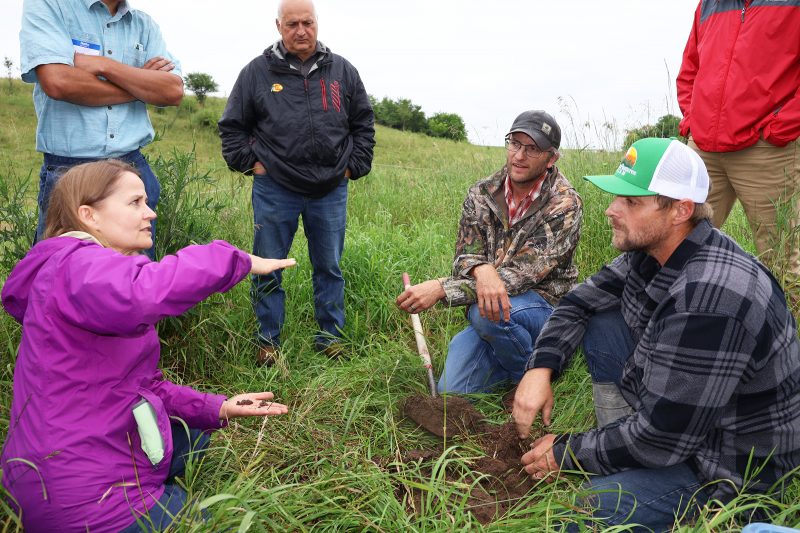
Note: This is the 1st installment in the 12-part “A Sense of Where You Are” series.
On a sunny day in June, hundreds of ewes make their way through a narrow grazing paddock, flowing along the contours of a Driftless Area hill in southeastern Minnesota like a woolly river. Later in the growing season, a west-central Minnesota farmer shows off a flat-as-a-pancake field that had formerly grown hybrid poplars — it’s now being converted to another form of perennials that can be grazed by beef cattle. As trains rumble by just a few yards away, a vegetable farmer in the middle of Minneapolis grapples with the challenges of building soil health in the city. In western Wisconsin, a produce and chicken operation bases part of its marketing strategy on the idea that rural people deserve to eat healthy food as well. In central Minnesota, a dairy farming family realizes that building biology isn’t just good for the land and crops — it also improves quality of life. Seventy miles to the south, an organic farmer checks a massive whiteboard “spreadsheet” set up in his machine shed to schedule daily tasks at a time when climate change leaves little room for error. In southwestern Minnesota, a family converts row cropped fields to annual and perennial forages as their neighbors haul corn past their fields to the local ethanol plant.
Doing things in “context” is a big part of the regenerative farming discussion these days. In fact, the original “five principles of soil health” — armor the soil, minimize soil disturbance, increase plant diversity, keep living roots in the soil, and integrate livestock — now have a sixth companion: keep things in context. It’s not enough to adopt a practice that, for example, produces a marketable product, reduces labor, or builds good aggregate soil structure. One also needs to figure out where that practice fits in as far as the bigger, interconnected picture is concerned. Raising corn when prices are high makes sense when considering it as an isolated enterprise. But what’s the cost from a labor, input, and equipment point of view? And what happens when the market nosedives? Integrating cover crops into a corn-soybean operation is always a good idea if reducing erosion and building soil biology are the goals, but how sustainable is the practice if it doesn’t generate enough economic value to keep it going in the long term?
During the 2024 field day season, considering things in context was a major topic in pastures and crop fields, as well as in vegetable plots and high tunnels. See below for links to our special “A Sense of Where You Are” blog series, which provides firsthand reports from 11 of those field days. These are 11 mini-examples of farmers connecting the dots and putting them into perspective every chance they get. Taken as whole, they provide a glimpse at the potential regenerative farming has for revitalizing the land and our communities.
Brian DeVore edits the Land Stewardship Letter and produces the Ear to the Ground podcast.